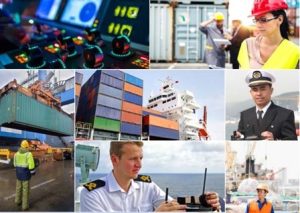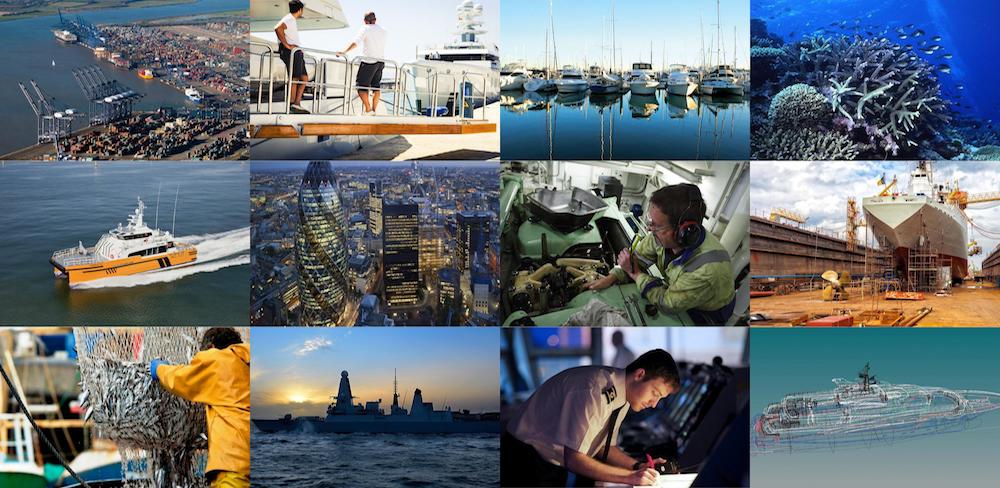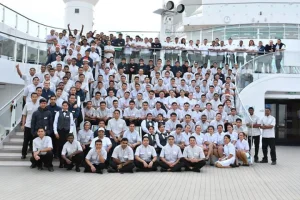The maritime industry has long been a cornerstone of global trade and cultural exchange, offering diverse career opportunities that span continents and oceans. From navigating colossal vessels to designing cutting-edge technologies, marine careers are as varied as they are vital. These professions not only provide lucrative paths but also play a critical role in shaping the global economy, supporting environmental sustainability, and fostering innovation.

The Importance of Marine Careers
The maritime industry supports over 90% of global trade by volume, making it an essential sector for economic stability. Careers in this field are indispensable for ensuring the seamless movement of goods, energy resources, and people. Furthermore, the growing focus on sustainability and digitalization has expanded career opportunities, fostering innovation and creating a demand for highly skilled professionals.
Case Study: Contribution to the Global Economy A report by the International Chamber of Shipping (ICS) highlights that the shipping industry contributes approximately $500 billion annually to global GDP, directly employing over 1.5 million seafarers and millions more in related industries such as shipbuilding, port operations, and logistics.
Core Categories of Marine Careers
Seafaring Professions
Seafaring remains the backbone of the maritime industry, offering dynamic roles aboard various types of vessels, from cargo ships to luxury cruise liners.
Deck Officers
Deck officers are responsible for navigating ships, ensuring safety, and overseeing cargo operations. They work in shifts to maintain 24/7 operational readiness. A Chief Officer, for example, oversees loading and unloading operations, ensuring compliance with international regulations.
Marine Engineers
Marine engineers maintain and repair shipboard machinery, from propulsion systems to auxiliary equipment. With the advent of green technologies, engineers are increasingly engaged in installing and maintaining exhaust gas cleaning systems (scrubbers) and other emissions-reducing technologies.
Ratings
Ratings include general-purpose roles such as able seafarers and motormen who assist officers in day-to-day operations. These positions provide entry-level opportunities for individuals seeking to embark on a maritime career. Example: Path to the Top Captain Mary Jackson, one of the few female captains operating ultra-large container ships, began her career as a deck cadet, steadily rising through the ranks. Her story highlights the rewarding progression available within seafaring careers.
Shoreside and Support Roles
Not all marine careers are at sea. Shoreside professions provide vital support to maritime operations, offering stability for those seeking land-based roles.
Maritime Law and Regulation
Legal professionals specializing in maritime law handle complex issues such as ship registrations, collisions, and pollution incidents. For instance, attorneys working on cases involving the IMO 2020 sulfur cap ensure compliance with international regulations.
Port and Terminal Management
Ports are hubs of global commerce, requiring skilled managers to oversee operations. Port managers coordinate cargo handling, berth assignments, and customs clearance, ensuring smooth logistics.
Shipbroking and Chartering
Shipbrokers facilitate the leasing of vessels for cargo transport, negotiating contracts between shipowners and charterers. With global trade expected to grow by 4% annually, shipbroking remains a lucrative career option.
Emerging Fields in the Maritime Industry
As the industry evolves, new career opportunities are emerging, driven by technology, sustainability, and geopolitical changes.
Marine Renewable Energy : Marine careers are expanding into renewable energy sectors, such as offshore wind and tidal power. Engineers and technicians in this field design and maintain platforms, turbines, and transmission systems.
Case Study: Offshore Wind Farms The Hornsea Project in the North Sea, one of the world’s largest offshore wind farms, employs thousands of professionals in roles ranging from project management to underwater robotics, reflecting the growing demand for expertise in renewable energy.
Maritime Cybersecurity: The digitization of shipping operations has created vulnerabilities to cyberattacks. Maritime cybersecurity specialists protect systems, such as Electronic Chart Display and Information Systems (ECDIS), from threats, ensuring operational integrity.
Autonomous Shipping: The development of autonomous vessels has sparked demand for software developers, system integrators, and data analysts. Companies like Rolls-Royce Marine are pioneering projects involving remotely operated and fully autonomous ships.
Skills and Qualifications for Marine Careers
Marine careers require a blend of technical expertise, practical experience, and soft skills. Educational pathways and certification requirements vary depending on the role.
Academic and Professional Training
- Seafarers: Training typically begins with a maritime academy or cadet program, leading to certifications such as the Standards of Training, Certification, and Watchkeeping for Seafarers (STCW).
- Engineers: Marine engineers often hold degrees in mechanical or marine engineering, followed by practical training aboard ships.
- Shoreside Professionals: Port managers and maritime lawyers often require specialized degrees in business administration, logistics, or maritime law.
Soft Skills for Success
- Adaptability: Working in dynamic environments requires the ability to adjust quickly to changing conditions.
- Problem-Solving: Troubleshooting complex mechanical systems or resolving logistical challenges is a critical aspect of many roles.
- Teamwork: Collaboration is essential, whether at sea or in port, to ensure safety and efficiency.
Challenges and Rewards of Marine Careers
Marine careers offer unique challenges and rewards, reflecting the dynamic nature of the industry.
Challenges
- Extended Time Away: Seafarers often spend months away from home, requiring resilience and strong support networks.
- Demanding Work Conditions: Both at sea and ashore, maritime roles often involve high-pressure environments.
- Regulatory Compliance: Adhering to evolving international regulations requires continuous learning and adaptability.
Rewards
- Global Exposure: Marine careers provide opportunities to travel and interact with diverse cultures.
- Competitive Compensation: Salaries in the maritime industry are often above average, reflecting the specialized skills required.
- Career Growth: The sector offers clear pathways for advancement, supported by training and certification programs.
Example: A Rewarding Career John Li, a marine engineer, transitioned to a role in renewable energy after a decade at sea. His experience aboard LNG carriers positioned him perfectly for a senior engineering role in an offshore wind farm project, demonstrating the diverse opportunities within the industry.
The Future of Marine Careers
The maritime industry is undergoing significant transformations driven by technology, sustainability, and globalization. These changes are reshaping career opportunities, creating demand for new skill sets and expertise.
Sustainability and Decarbonization: The push for decarbonization, aligned with IMO targets to reduce GHG emissions by 50% by 2050, is creating roles in sustainable shipping practices. Professionals with expertise in alternative fuels, such as hydrogen and ammonia, will be in high demand.
Digitalization and Automation: The integration of digital tools, from blockchain in logistics to AI in route optimization, is revolutionizing operations. This trend calls for a workforce skilled in technology and data analysis.
Geopolitical Shifts : Geopolitical developments, such as new trade routes and policies, will influence the demand for marine professionals. For instance, the opening of the Northern Sea Route due to Arctic ice melt is expected to create opportunities in navigation and logistics.
Conclusion
Marine careers offer diverse and rewarding opportunities across a wide spectrum of roles, from traditional seafaring to cutting-edge technologies in renewable energy and cybersecurity. These professions not only contribute to global trade and economic stability but also play a vital role in driving innovation and sustainability. Aspiring professionals can find their path in this dynamic industry through proper training, certification, and a commitment to lifelong learning. As the maritime sector continues to evolve, it will remain a source of exciting challenges and unparalleled opportunities for those ready to embark on a career across the seven seas.






